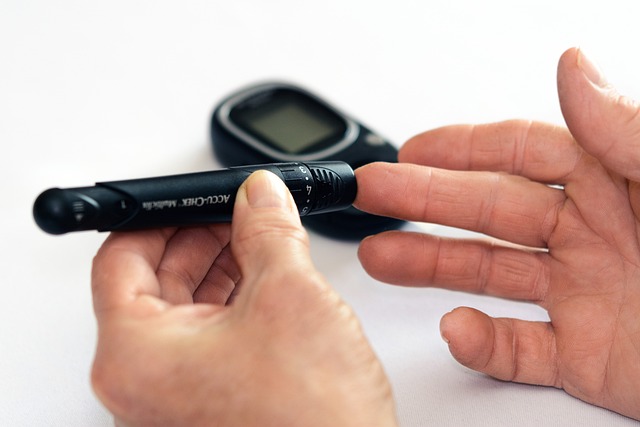The UK Kidney Blood Test is a key tool for managing cholesterol, crucial for heart health. Regular testing every 5 years from age 40 detects high LDL ('bad') cholesterol, which lacks noticeable symptoms but carries significant risks. Results guide lifestyle adjustments and medical treatments to optimize cardiovascular health by balancing 'good' HDL and total cholesterol levels through diet, exercise, and medication when needed.
“Cholesterol management is a vital aspect of maintaining heart health, and understanding your cholesterol levels is the first step. In the UK, where cardiovascular diseases remain a significant concern, regular monitoring is crucial. This article guides you through the essential process of measuring cholesterol with a simple kidney blood test (KBT). We’ll explore why this test matters, how it works, and provide insights on interpreting results to help you maintain healthy cholesterol levels.”
- Understanding Cholesterol and Why It Matters in the UK
- Uncovering the Kidney Blood Test: A Simple Approach to Monitoring Cholesterol
- Interpreting Results and Maintaining Healthy Levels
Understanding Cholesterol and Why It Matters in the UK
Cholesterol is a waxy substance found in our blood, essential for various bodily functions such as producing hormones and vitamin D. However, high cholesterol levels can be harmful. It’s a significant risk factor for heart disease and stroke, two of the leading causes of death in the UK. Regularly checking cholesterol levels through simple blood tests like the UK Kidney Blood Test is crucial for maintaining overall health.
In the UK, it’s recommended that adults over 40 years old get their cholesterol tested at least every five years. This is because high cholesterol often shows no symptoms, allowing for undetected and untreated issues to progress. The UK Kidney Blood Test measures low-density lipoprotein (LDL) cholesterol, known as ‘bad’ cholesterol, and high-density lipoprotein (HDL) cholesterol, or ‘good’ cholesterol. Understanding these levels helps healthcare professionals assess cardiovascular health risks and recommend appropriate lifestyle changes or treatments if necessary.
Uncovering the Kidney Blood Test: A Simple Approach to Monitoring Cholesterol
In the pursuit of maintaining optimal health, especially in the UK, monitoring cholesterol levels through simple blood tests has become a common practice. Among these, the kidney blood test stands out as an accessible and effective method for tracking cholesterol. This straightforward procedure measures various elements within your blood, offering valuable insights into your cardiovascular health.
The UK kidney blood test goes beyond assessing kidney function; it provides a comprehensive view of cholesterol levels, including LDL (low-density lipoprotein), HDL (high-density lipoprotein), and total cholesterol. These readings are crucial in identifying potential risks and guiding lifestyle adjustments or medical interventions. By encouraging regular check-ups, individuals can take proactive steps towards managing their cholesterol and safeguarding their overall well-being.
Interpreting Results and Maintaining Healthy Levels
Interpreting your blood test results is a crucial step in managing your cholesterol levels. In the UK, a typical kidney blood test will provide measurements for total cholesterol, LDL (low-density lipoprotein) or ‘bad’ cholesterol, and HDL (high-density lipoprotein) or ‘good’ cholesterol. A healthy balance between these types of cholesterol is key; generally, higher HDL levels are beneficial as they help remove LDL cholesterol from your arteries.
Maintaining healthy cholesterol levels involves a combination of dietary choices, exercise, and sometimes medication. A balanced diet low in saturated fats can significantly impact your cholesterol profile. Regular physical activity, such as brisk walking or swimming, has also been shown to boost HDL levels while lowering LDL. For those with persistently high cholesterol despite lifestyle changes, healthcare professionals may prescribe medications specifically designed to reduce cholesterol levels.
Cholesterol management is a vital aspect of maintaining good health, especially in the UK. Regular monitoring through simple blood tests like the kidney blood test can help identify elevated cholesterol levels early on. By understanding your results and taking appropriate measures to keep cholesterol in check, you can significantly reduce the risk of cardiovascular diseases. Remember, proactive steps today can lead to a healthier tomorrow.
